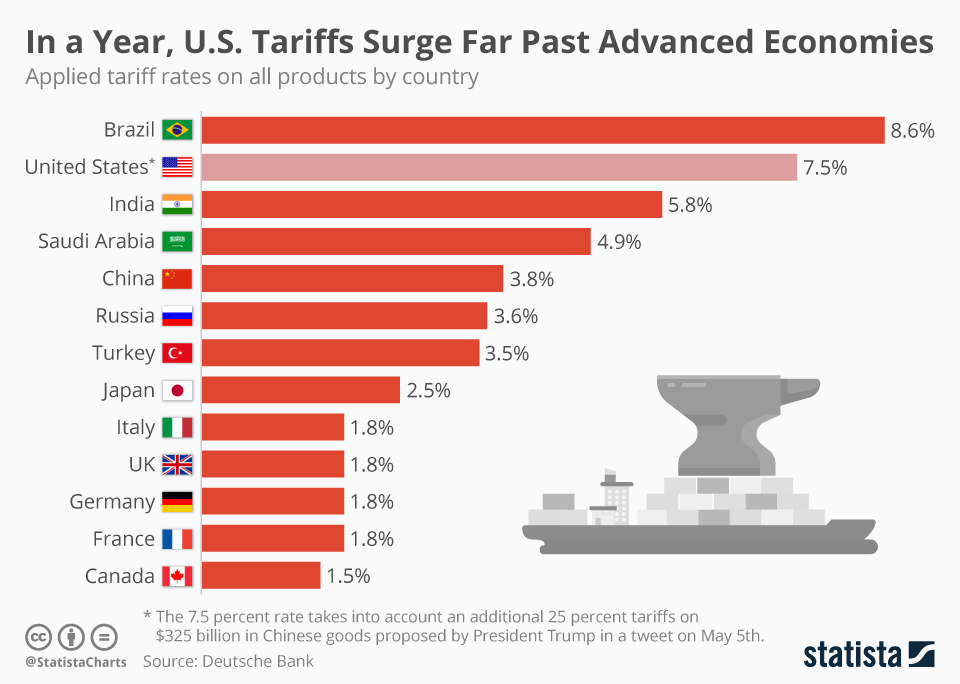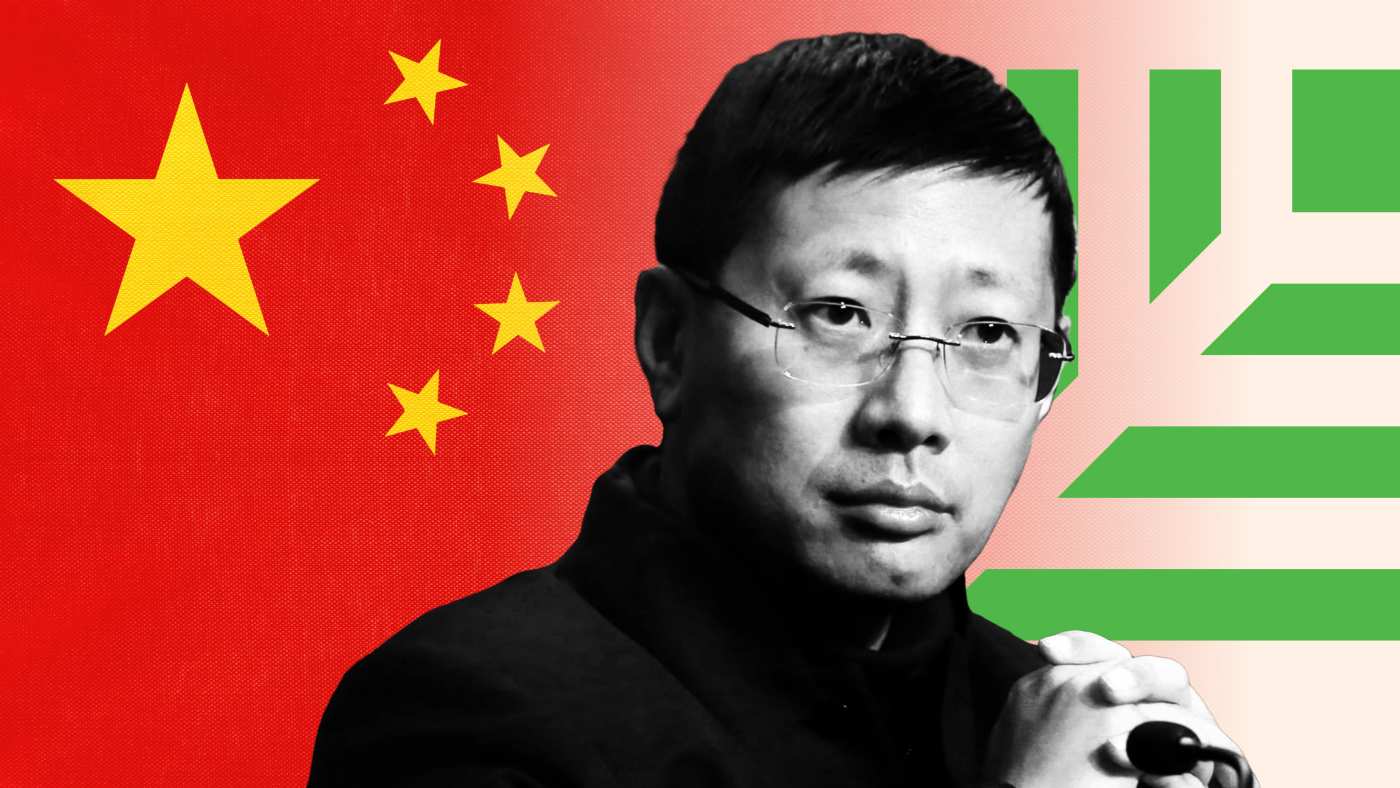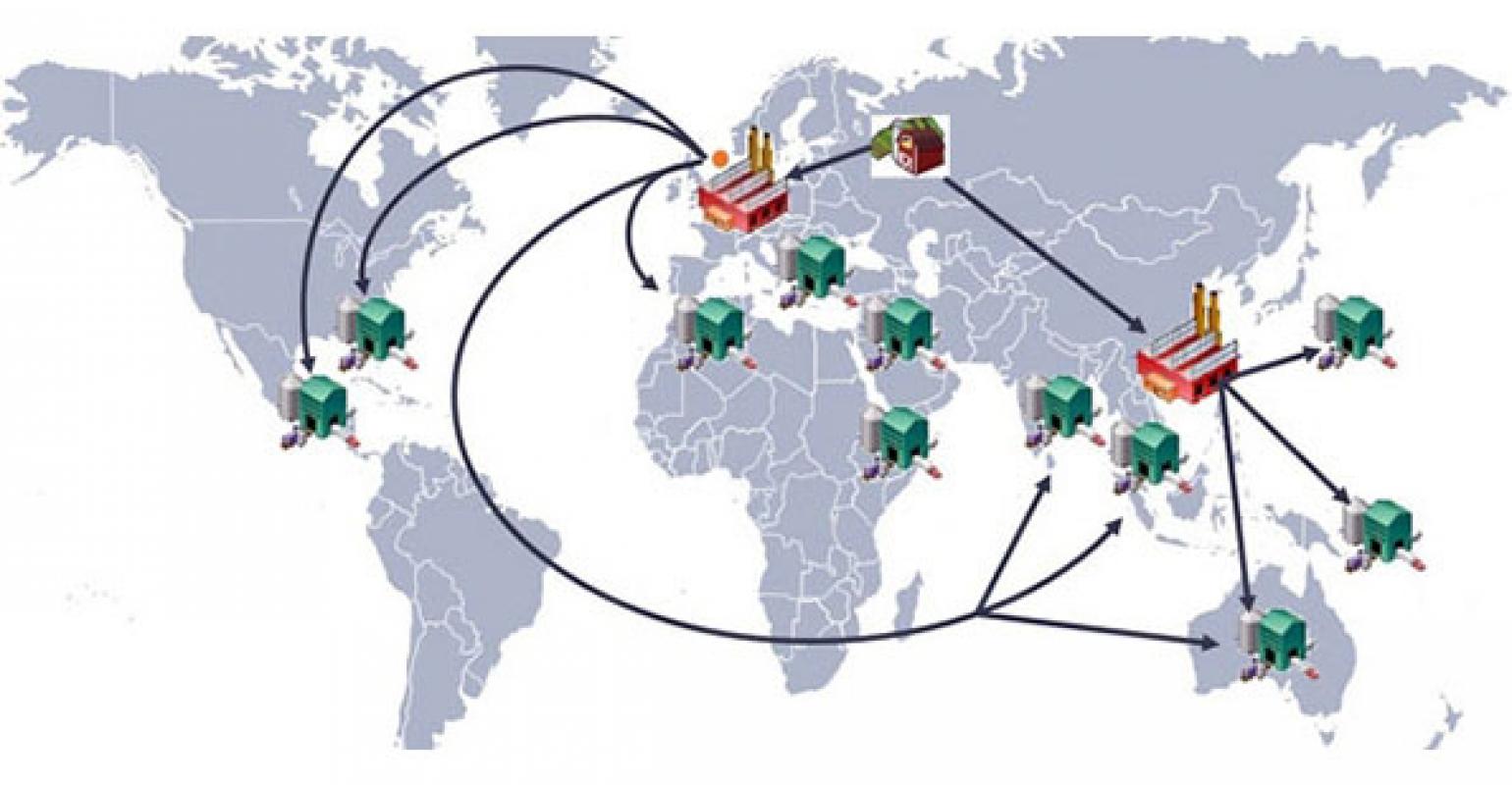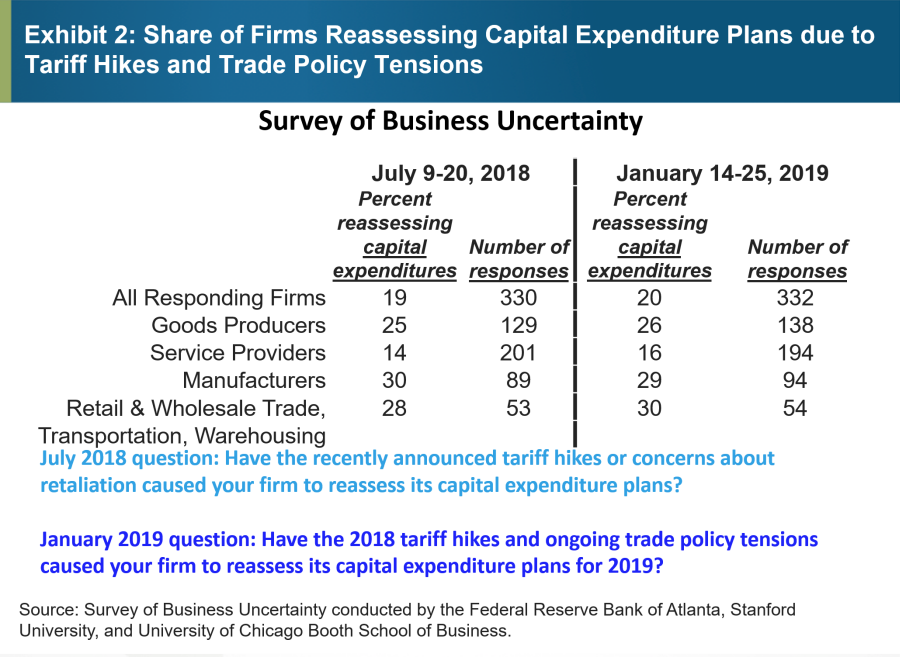The Impact Of Trump's China Tariffs: Inflation, Supply Chain Issues And Their Consequences

Table of Contents
The Inflationary Impact of Trump's China Tariffs
Increased Prices for Consumers
Trump's China tariffs directly increased the cost of imported goods from China. These tariffs, essentially taxes on imports, were passed down the supply chain, ultimately increasing prices for consumers. Specific examples abound: electronics, once relatively inexpensive, saw price hikes; furniture and home goods became more costly; and the price of clothing and apparel rose significantly. This direct impact contributed to inflationary pressure on the overall consumer price index (CPI), impacting household budgets across the nation.
- Increased prices for electronics: Tariffs on components and finished goods led to higher prices for smartphones, laptops, and other electronics.
- Higher costs for furniture and home goods: Tariffs on furniture, textiles, and other materials used in manufacturing increased the cost of these goods.
- Impact on clothing and apparel prices: Tariffs on textiles and clothing led to noticeable increases in retail prices for consumers.
- Inflationary pressure on the overall consumer price index (CPI): The cumulative effect of these price increases contributed significantly to overall inflation.
The Role of Tariffs in Fueling Inflation
The inflationary impact of Trump's China tariffs extended beyond the direct price increases on imported goods. Businesses faced increased production costs due to the tariffs, forcing them to either absorb these costs or pass them on to consumers, further exacerbating inflation. This indirect impact created a ripple effect throughout the economy.
- Impact on manufacturing costs: Businesses reliant on imported Chinese goods saw their input costs increase, affecting their profit margins and overall competitiveness.
- Increased transportation costs due to trade disruptions: The tariffs led to trade diversions and increased shipping distances, driving up transportation expenses.
- The ripple effect on various sectors of the economy: The increased costs impacted various sectors, from manufacturing and retail to construction and agriculture, contributing to broader inflationary pressures.
Disruptions to Global Supply Chains Caused by Trump's China Tariffs
Trade Diversification and its Challenges
Faced with increased costs and uncertainty, businesses attempted to diversify their supply chains away from China. However, this proved challenging and expensive. Finding reliable alternative suppliers, negotiating new contracts, and establishing new logistical networks took time and resources.
- Increased lead times for sourcing materials: Businesses experienced significant delays in obtaining necessary materials due to the complexities of establishing new supply chains.
- Higher transportation costs associated with longer supply chains: Sourcing from alternative locations often meant longer shipping distances and higher transportation expenses.
- Difficulties in maintaining quality control with new suppliers: Shifting suppliers meant potential compromises in product quality and consistency.
The Impact on Manufacturing and Production
Supply chain disruptions caused by Trump's China tariffs had a significant impact on manufacturing and production. Businesses experienced delays, shortages, and increased costs, impacting their ability to meet consumer demand and maintain profitability.
- Production delays and bottlenecks: Supply chain disruptions led to production delays and bottlenecks, impacting output and delivery schedules.
- Increased inventory costs due to uncertainty: Businesses faced increased costs associated with holding larger inventories to mitigate the risk of future shortages.
- Impact on job security and employment: The economic uncertainty and disruptions created by supply chain issues led to concerns about job security and employment in affected industries.
Long-Term Economic Consequences of Trump's China Tariffs
Impact on Global Trade Relations
Trump's China tariffs had far-reaching consequences for global trade relations and international cooperation. China retaliated with its own tariffs on US exports, escalating trade tensions between the two economic giants. This contributed to uncertainty and instability in international markets and negatively impacted global economic growth.
- Escalation of trade tensions between the US and China: The tariffs triggered a tit-for-tat trade war, damaging the relationship between the two largest economies.
- Negative impact on global economic growth: The trade war dampened global economic growth as businesses faced uncertainty and higher costs.
- Uncertainty and instability in international markets: The trade disputes led to uncertainty and volatility in global markets, impacting investor confidence.
Geopolitical Implications
The geopolitical implications of Trump's China tariffs were substantial. The increased tensions between the US and China created broader shifts in global power dynamics and impacted alliances and partnerships.
- Increased tensions between the US and China: The trade war exacerbated existing tensions between the two countries, impacting diplomatic relations.
- Impact on alliances and partnerships: The trade disputes caused uncertainty among US allies and partners concerning US trade policy and global leadership.
- Repercussions for global security and stability: The escalating tensions between the US and China had significant repercussions for global security and stability.
Conclusion
Trump's China tariffs had a profound and lasting impact on inflation, global supply chains, and international relations. The increased costs for consumers, disruptions to manufacturing, and escalation of trade tensions highlight the significant economic consequences of protectionist trade policies. Understanding the complex interplay of these factors is crucial for navigating future trade challenges. To fully grasp the ramifications, further research into the long-term effects of protectionist policies and the intricacies of international trade is essential. Analyzing the consequences of trade wars and understanding the impact of China tariffs are vital steps in formulating effective and sustainable economic strategies.

Featured Posts
-
 Predicting Trumps Next 100 Days Trade Policy Regulatory Changes And Executive Orders
Apr 29, 2025
Predicting Trumps Next 100 Days Trade Policy Regulatory Changes And Executive Orders
Apr 29, 2025 -
 Exclusive Huawei Develops Cutting Edge Ai Chip To Rival Nvidia
Apr 29, 2025
Exclusive Huawei Develops Cutting Edge Ai Chip To Rival Nvidia
Apr 29, 2025 -
 Analyzing The Economic Fallout Of Trumps China Tariffs Inflation And Supply Chain Disruptions
Apr 29, 2025
Analyzing The Economic Fallout Of Trumps China Tariffs Inflation And Supply Chain Disruptions
Apr 29, 2025 -
 The Impact Of Tariff Uncertainty On U S Company Spending
Apr 29, 2025
The Impact Of Tariff Uncertainty On U S Company Spending
Apr 29, 2025 -
 Jan 6 Hearing Star Cassidy Hutchinson To Publish Memoir This Fall
Apr 29, 2025
Jan 6 Hearing Star Cassidy Hutchinson To Publish Memoir This Fall
Apr 29, 2025
Latest Posts
-
 Willie Nelsons Health Concerns Rise Amidst Rigorous Touring Schedule
Apr 29, 2025
Willie Nelsons Health Concerns Rise Amidst Rigorous Touring Schedule
Apr 29, 2025 -
 Willie Nelsons Outlaw Music Festival Bob Dylan And Billy Strings In Portland
Apr 29, 2025
Willie Nelsons Outlaw Music Festival Bob Dylan And Billy Strings In Portland
Apr 29, 2025 -
 Willie Nelson New Album Release Overshadowed By Family Drama
Apr 29, 2025
Willie Nelson New Album Release Overshadowed By Family Drama
Apr 29, 2025 -
 At And T Sounds Alarm On Broadcoms Extreme V Mware Price Increase
Apr 29, 2025
At And T Sounds Alarm On Broadcoms Extreme V Mware Price Increase
Apr 29, 2025 -
 Austin City Limits Celebrating Willie Nelson And Familys Legacy
Apr 29, 2025
Austin City Limits Celebrating Willie Nelson And Familys Legacy
Apr 29, 2025
